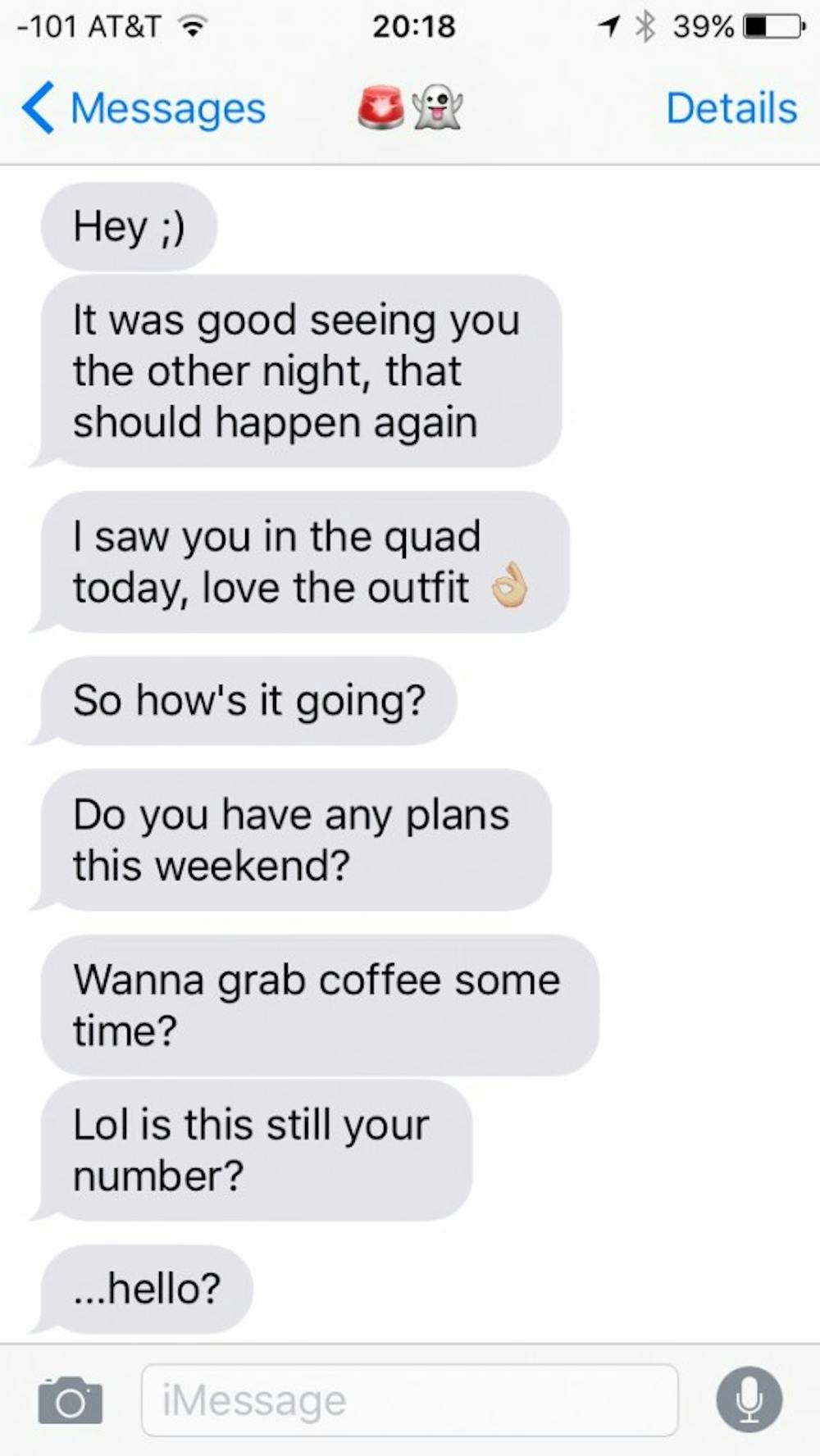by Luke Loranger |
In the digital age of dating, ghosting has become a cultural phenomenon. It removes the awkward encounters or conversations that inevitably happen when you want to end a relationship with someone by allowing people to entirely avoid the encounter, usually via text message.
Ghosting is defined as ceasing all communication with a friend, loved one, or someone that you are intimately involved with. For many in platonic relationships, it is an easy way to express that their attention is otherwise focused.
“I do it to people on a friend basis, and it is basically to show them I am busy at the time,” sophomore business major Jack Hulbert said. “I've done it in a fight with a friend, or basically to say, ‘this (isn't) worth responding to.’”
Ghosting has come of age in the era of read receipts and Facebook Messenger, in which someone can know — down to the second — when someone has read their message. For some, the act of ghosting can be an intentional way of letting another person know that they are not interested in them, or that they want to cut them out of their lives.
“I feel that for romantic or sexual relationships it is sometimes the best route to go when you feel that further communication wouldn’t take your relationship anywhere, positively or negatively,” sophomore history major Alex Mitchell said. “I had an ex boyfriend who would verbally assault me, so I ended things. His response was to threaten me, so my response was to talk things out with him. It came to the point where I had to ghost him. It may be seen as cruel but I just knew that I didn’t want this person in my life anymore.”
Situations like this may show the best side of ghosting, one in which silence displays a sense of disinterest better than any words could — but ghosting is still primarily used to remove oneself from uncomfortable situations that arise after a regrettable night or simple loss of interest in another person.
“We had known each other for over a year, and it turned into more than friends for six months. Then out of the blue it was like, ‘Bye see you later,’” sophomore Madeline Ochs said. “If you don't want to talk to me that’s fine. People change; I get it. I would love a heads up, like ‘Hey I’m not feeling this anymore.’ It hurts more when it gets cut off.”
Ghosting as most often discussed in popular culture is still a very bad way to end a relationship, friendship or the gray area in between that often dominates modern dating culture.
“I feel that (ghosting) is the new way of rejecting people,” Mitchell said. “We meet a lot more people in our generation than our parents have, because of social media.”
Both the ghosted and ghostees have a word of advice: Think carefully before you make the choice to ghost someone, and only do it when it’s clear that you’ll never see someone in person again. You are, after all, dealing with another person’s feelings, as noted by freshman engineering major Thomas Ryan.
“Ignorance is bliss, but ignoring someone is pain.”
Luke Loranger is a reporter for The Beacon and can be reached @loranger18 or loranger18@up.edu.








